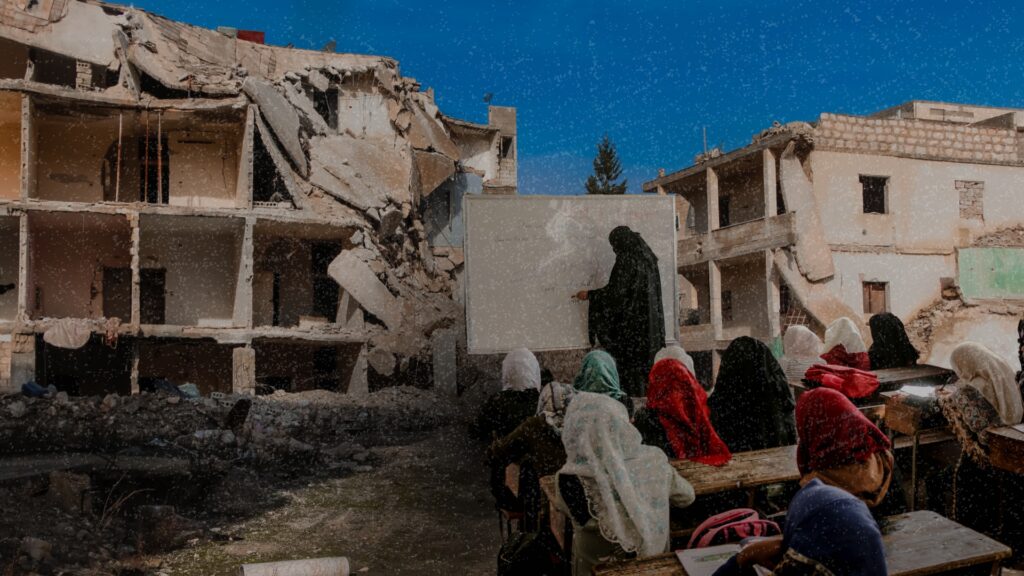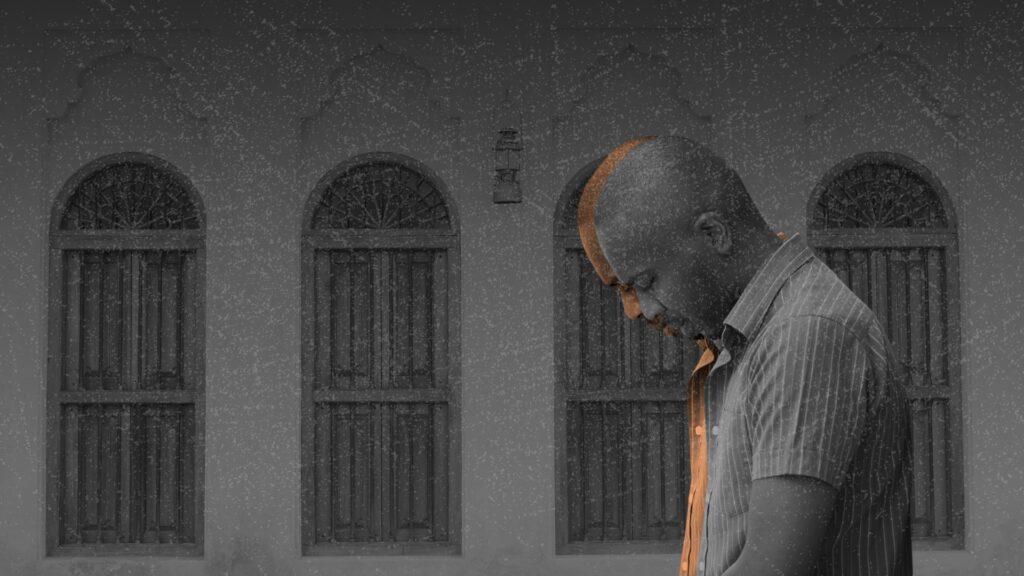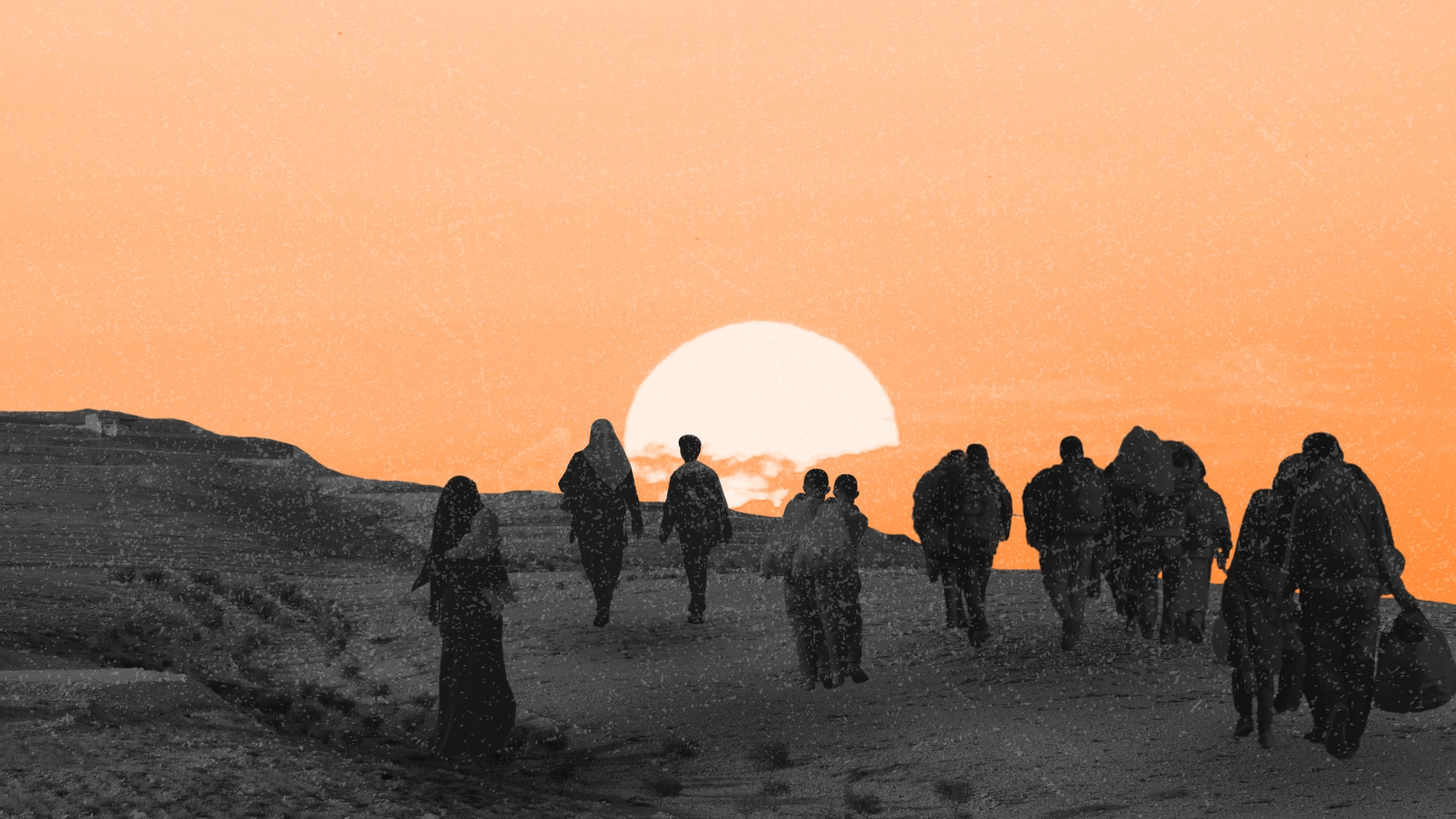‘I only know that in every city the Holy Spirit warns me that prison and hardships are facing me. However, I consider my life worth nothing to me; my only aim is to finish the race and complete the task the Lord Jesus has given me—the task of testifying to the good news of God’s grace’ (Acts 20:23-24).
In the anonymous poem, When God wants to Drill a Man1, the writer beautifully captures God’s drilling and molding processes for raising his impactful emissaries in the first two stanzas;
‘When God wants to drill a man,
And thrill a man,
And skill a man
When God wants to mold a man
To play the noblest part;
When He yearns with all His heart
To create so great and bold a man
That all the world shall be amazed,
Watch His methods, watch His ways!’
It is said that God’s methods are men and women. However, they are ordinary people living their everyday lives who allow God to drill them to play the noblest part and to thrill the world.

Syria’s Civil War: In Defiance of Fear
Since 2011, Syria has been in a civil war. Many people have fled the nation. However, there are those like Ruba*2 who God keeps drilling to defy the fear of the bombs and blasts. In the face of towering despair, Ruba continues to hold firmly to the word of life. Working among young people, Ruba’s impactful ministry serves as an example for the global church.
Syria’s Spiritual Climate of Mistrust
There is a spiritual tension in Syria and this, according to Ruba, comes from two dimensions. First and general is the persecution of Christians in the country. But the second is the relationship of mistrust between the mainstream churches, parachurch organizations, and young people. Noteworthy is the fact that ministries are to operate under the umbrella of the traditional Syrian church denominations. However, this has been ineffective, leading to the creation of parachurch organizations which do not have the support of the church denominations. But Ruba and others are working to overcome this tension by constant dialogue with the church and the parachurch organizations in order to work together to bring more people to Christ, especially within the university student movement.
It is within this context that Ruba has been able to host university student movements in Syria under the humanitarian organization she founded, working with two other full-time staff and several volunteers. This structure has worked perfectly, providing a safe environment to engage people who would never enter the church. And the fruits of this unique relationship between Ruba’s NGO and one student movement have been evident in the lives of several people from Orthodox, Catholic, and Muslim backgrounds. These are participating actively in Bible study group-discussions and initiatives where they can know Christ. According to Ruba, ‘Individuals have joined these Christian programs under the auspices of the NGO […]. As far as their families are concerned, they are not going to church but rather an organization. That has helped us reach more people’.3

From Internship to Eternity
Ruba’s humanitarian work and ministry among students in Syria have created opportunities to engage individuals. The transformational story of a Muslim girl who came to work as an intern is worth highlighting. Initially, Ruba was skeptical about accepting her as an intern due to the girl’s conservative Islamic background and issues of discrimination. However, after praying, she sensed the need to bring her on board. As a result of the girl’s traumatic response to all her experiences, she acted rudely and would hardly take instructions.
One day, Ruba and another student intern were discussing the attributes of Christ and publicly portraying him through deeds. This made the Muslim girl curious. Following up with a conversation about Jesus at dinner time, the Muslim girl said, ‘This is the person I have been looking for and I feel in my heart that I need. So, the person you are describing, how can I be in relationship with him (Jesus Christ)?’ The student explained the gospel to her, and she prayed with her to accept Jesus. She started attending the Bible study discussions, and now she is growing as a committed disciple of Jesus Christ. This new convert’s decision to follow Jesus was met by this response from her father: ‘I will not stand in your way, but I will not support you.’ A few weeks ago, her father committed suicide, leaving a note she later discovered: ‘It’s not your fault that I committed suicide, but I cannot handle the idea that I brought five girls into a world that isn’t supportive of their faith. Please keep following the Christ that you are following. Do not let anything stand in your way.’
From Lost Dreams to Lofty Desires
On one occasion, Ruba met a young man from a strict Muslim conservative family gazing intently at the rubble of a building. His face showed signs of terror, fear, and hopelessness. But Ruba approached him and engaged him, though the gentleman was initially resistant. Ruba insisted, ‘I come from a God of love, a God who wants to help. And I want to listen to what you are going through.’ This convinced him to share how his dreams had come crashing down with the building. The building was meant to be sold and its money used to support his residency in dentistry. However, his hopes of practicing were dashed. Ruba took the opportunity to share with him about God and his bigger purpose for his life. After a few months, the two got together and continued the conversation about dreams, Christ, purpose, and the gospel. ‘You’ve changed my life in a different perspective that I’m no longer tied to the material things of this world,’ the young man told Ruba.
Challenges
Persecution is one major challenge that Christians in Syria have to deal with. However, it is interesting to know that this persecution is not by the government. It is one that may be called, ‘familial, community, or internal persecution’, since it comes from family members, friends, and indigenous people. Young people who make a decision to follow Christ are tagged as double-crossers. Persecution, according to their persecutors, is therefore a reasonable consequence.
Living in a war-torn country, university students and young people have become vulnerable. Ruba and her team work to support them to survive, especially in educational funding. These young people dream of pursuing university education, but who will help them? Their existential needs are beyond Ruba’s capacity to meet. It would have been so easy in such circumstances to despair and quit, but this has not been Ruba’s posture. She and her team have tried, and keep trying, to help as much as they can in the face of limited funds and resources.
Conclusion
The writer of the poem, When God wants to Drill a Man, reminds us in the last stanza of God’s incredible ability and grace to use anyone to show his splendor and bring impact across the nations.
How He bends but never breaks
When his good He undertakes;
How He uses whom He chooses,
And which every purpose fuses him;
By every act induces him
To try His splendor out
God knows what He’s about.
Endnotes
- https://thetruthrenaissance.wordpress.com/2010/09/14/poetry-when-god-wants-to-drill-a-man/. Accessed 27 September 2024.
- Pseudonym.
- Ruba, interview by Nana Kojo Aboagye-Obeng, 24 September 2024 See: https://lausanne.org/about/blog/the-syrian-war-to-live-or-to-leave

